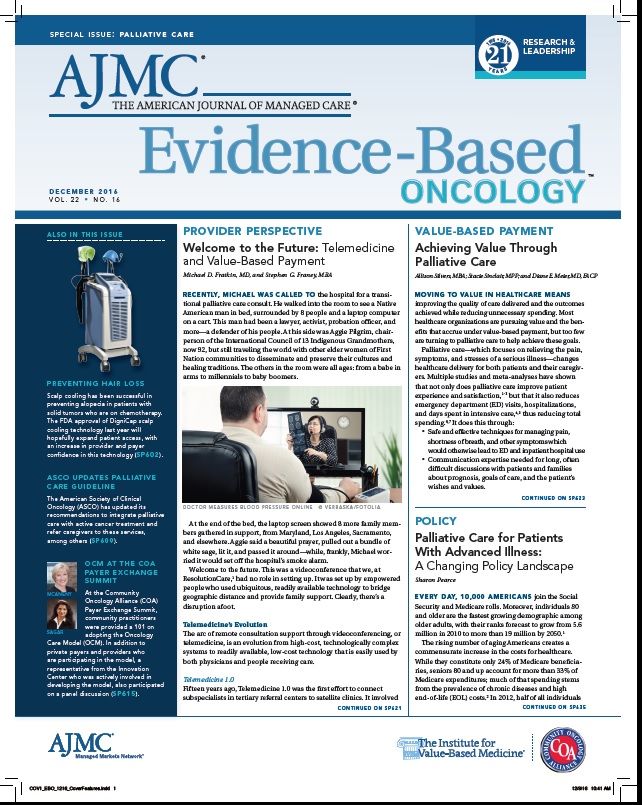- Center on Health Equity & Access
- Clinical
- Health Care Cost
- Health Care Delivery
- Insurance
- Policy
- Technology
- Value-Based Care
Interesting Times in Healthcare
These are uncertain times in healthcare and the anxiety levels of stakeholders remain high as everyone waits to see how the appointments and policy changes within the new administration will impact healthcare in the United States in the near future.
IN HIS "RIPPLES OF HOPE ”
speech at the University of Cape Town, Robert F. Kennedy challenged his audience by telling them, “There is a Chinese curse which says, ‘May he live in interesting times.’ Like it or not we live in interesting times.”1 While the origins of this curse are likely apocryphal,2 the sense of anxiety associated with coping with the uncertainty of changing circumstance seems appropriate as we contemplate the potential repeal of the Affordable Care Act (ACA).
Since it was signed into law on March 23, 2010, the ACA has provided a deeply detailed roadmap for the remaking of American healthcare.3 For the past 6 years, stakeholders throughout the United States have participated in a mass reorganization of the healthcare system. This has included large-scale consolidation of providers and hospitals, development of the federal and state insurance exchange markets, restructuring of insurance products, realignment of payment policies, industry-wide restructuring of care processes, and a shift toward creating sustainable value-based care models. In the domain of cancer care, we have seen physicians, payers, advocacy groups, pharma, pharmacy benefits managers, employers, and the government collaborate on the reinvention of our cancer care delivery system. Given the relentless pace of therapeutic innovation, the meteoric rise in the cost of pharmaceuticals, and the rapidly changing standards of care for virtually every cancer diagnostic category, the complexity of this process and the level of stakeholder investment would be difficult to overstate. A glance at the topics featured in Evidence-Based OncologyTM (EBOTM) over the past year reveals few areas in cancer care left untouched by the ACA.
Despite the breadth of engagement in this industry- wide reorganization, the ACA has been deeply polarizing. While for some it was an essential path toward equitable care access and sustainable healthcare expenditures, for others it was another example of federal micromanagement and overregulation of care delivery that led toward more costly, less-effective care with less consumer choice.4,5 On the heels of an election whose results were surprising to many, we now find ourselves at the threshold of a potential repeal of this law, without a clear articulation of what might replace it.6 The likely nomination of a highly vocal critic of the ACA (Georgia Congressman Tom Price) as Secretary of HHS signals that dramatic change rather than a nuanced evolution of the ACA is quite likely. Interesting times, indeed!
As we look to grapple with what is likely to be another period of extraordinary change in healthcare, there are some clues to the potential evolution of the ACA. Political promises notwithstanding, an immediate repeal would be extraordinarily difficult to achieve. Some have proposed that the actual undoing of the ACA might happen relatively slowly, over the course of several years, as a replacement strategy and legislation are crafted. Moreover, President- elect Donald Trump has indicated that some of the more popular portions of the law might remain in effect, including a ban against consideration of preexisting health conditions in coverage denials.7
The best clues to what healthcare strategy might look like under the incoming congress and Trump White House come from House Speaker Paul Ryan’s recent healthcare policy paper, A Better Way: Our Vision for a Confident America.8 In reviewing this policy paper, several important themes stand out. The focus upon value delivery in healthcare will remain an extraordinarily important driver in the evolution of cancer care. A recognition of the importance of innovation in care delivery ensures that the challenges of integrating rapidly evolving standards of care and novel therapeutics remains a central challenge in the cancer care domain. The reiteration of the importance of patient choice in healthcare reaffirms that care delivery systems will need to become increasingly patient-centered.
Undoubtedly, there are many interesting times ahead. At its core, however, the issues that we have highlighted throughout the past year in EBOTM remain the essential terrain that we will have to navigate in order to ultimately move toward sustainable, patient-centered, and innovation-driven cancer care delivery in the post-ACA era.
From the editorial staff, and me, we wish you a wonderful holiday season.
Josph Alvarnas, MD, is director, Medical Quality and Quality, Risk, and Regulatory Management, City of Hope, Duarte, CA. He is also the editor-in-chief of Evidence-Based Oncology™.
References
- RFK in the land of apartheid: a ripple of hope. Rfksafilm.org website. http:// www.rfksafilm.org/html/speeches/unicape.php. Accessed November 28, 2016.
- Kristof ND. A Chinese curse? The New York Times website. http://kristof.blogs. nytimes.com/2008/09/24/a-chinese-curse/?_r=0. Published September 24, 2008. Accessed November 28, 2016.
- Read the law. Department of Health and Human Services website. https://www. hhs.gov/healthcare/about-the-law/read-the-law/#. Accessed November 28, 2016.
- Rivlin AM. What the ACA has achieved and what’s next. Brookings Institution website. https://www.brookings.edu/opinions/what-the-aca-has-achieved-andwhats- next/.Published December 21, 2015. Accessed November 28, 2016.
- Epstein RA. Unaffordable care act. Hoover Institution website. http://www. hoover.org/research/unaffordable-care-act. Published October 31, 2016. Accessed November 28, 2016.
- Goldstein A. Obamacare’s future in critical condition after Trump’s victory. The Washington Post website. https://www.washingtonpost.com/national/ health-science/acas-future-in-critical-condition-with-trumps-victory/ 2016/11/09/7c5587e8-a684-11e6-ba59-a7d93165c6d4_story.html. Published November 9, 2016. Accessed November 28, 2016.
- Pearlstein S. Donald Trump is about to face a rude awakening over Obamacare. The Washington Post website. https://www.washingtonpost.com/news/wonk/ wp/2016/11/12/donald-trump-is-beginning-to-face-a-rude-awakening-overobamacare/. Published November 12, 2016. Accessed November 28, 2016.
- A better way: our vision for a confident America. A Better Way website. https:// abetterway.speaker.gov/_assets/pdf/ABetterWay-HealthCare-PolicyPaper.pdf. Published June 22, 2016. Accessed November 28, 2016.


